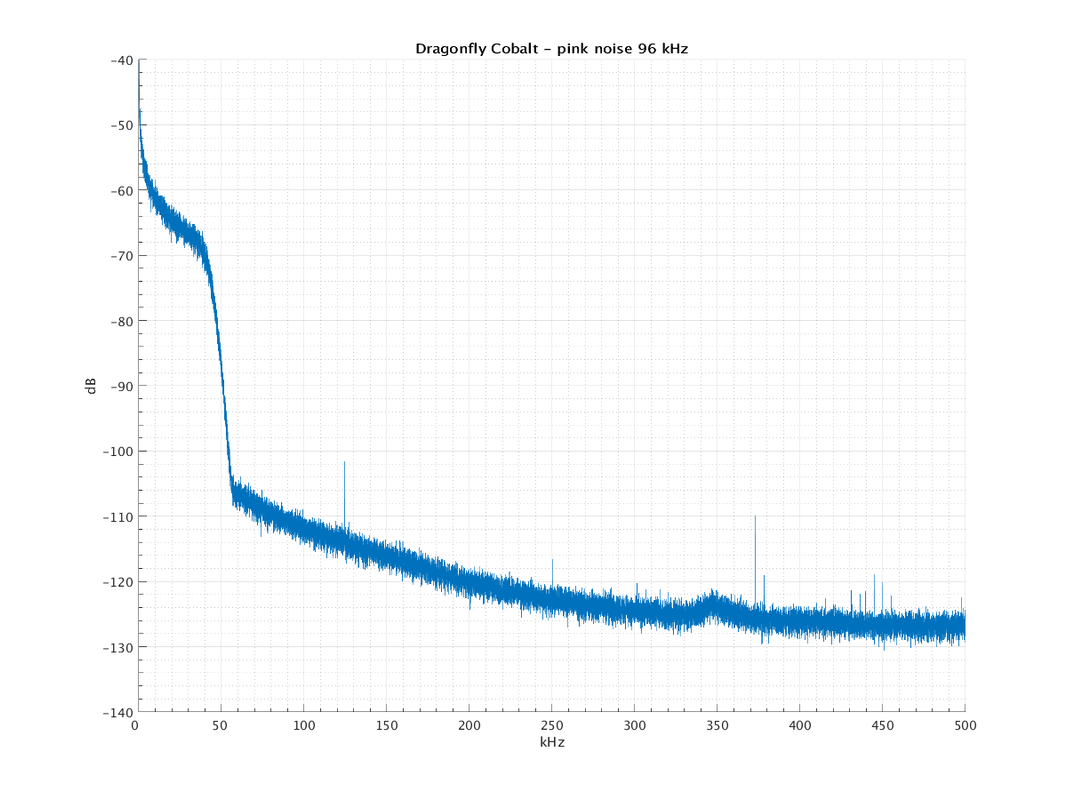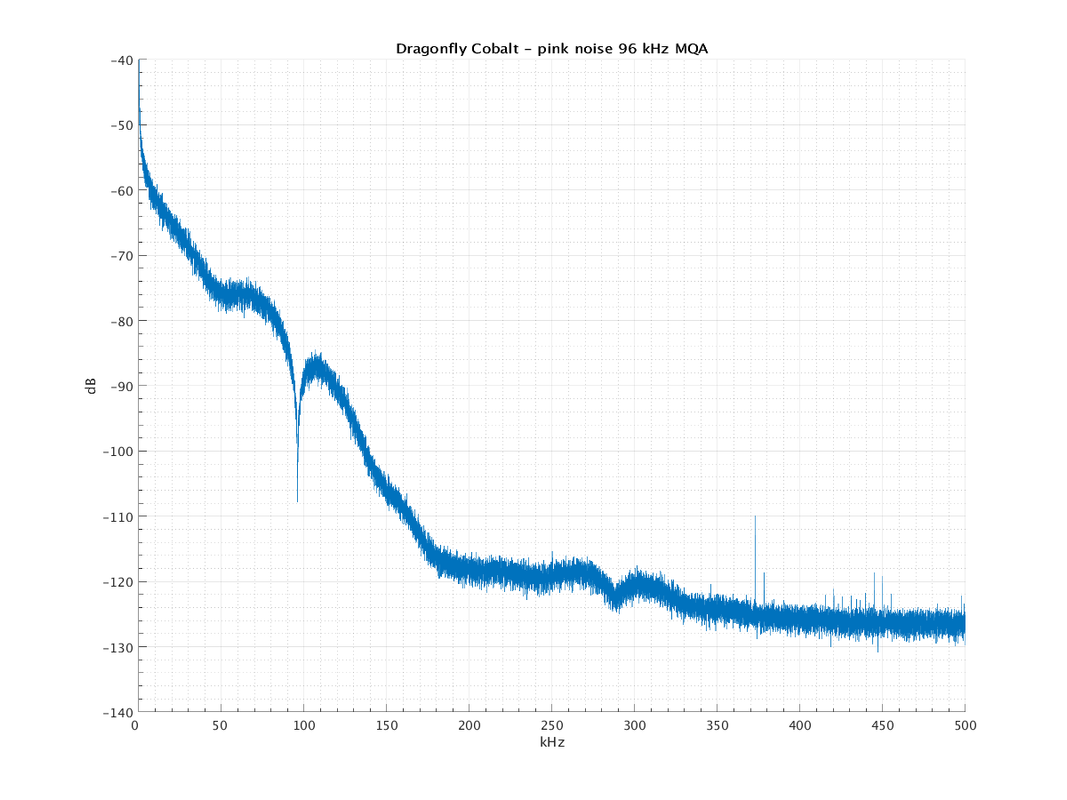You are using an out of date browser. It may not display this or other websites correctly.
You should upgrade or use an alternative browser.
You should upgrade or use an alternative browser.
MQA
- Thread starter Rosewind
- Start date
- Status
- Not open for further replies.
DimitryZ
pfm Member
In polls, about 25% of audiophiles hate MQA, 25% like it, and the rest either haven't decided or haven't heard of it.Great, I do agree, and now that we’ve agreed on that, we only need to add that having a view on what is done and how it sounds , as well as the ethics of business (yes, there is such a thing), and also how it’s done might be just as important to the community you mention, and in just the same way you describe above! And Your view here is just as valid as anyone’s .. but no more! And let’s face it, looks like the community won’t take the BS part of it! And what is there to not accept as an organic view?
and btw, I have listened to MQA, for a long while, on various gear, that’s part of why I am not any longer, but not only, although on some tracks it sounds good. Hence, I like the idea of a tone control at the most, or a version - but no more and not the only one, and no ketchup on everything please. The point again is, though, that the SQ is far from the whole story. And you can only agree here that it also seems to be the community organic view! cheers
I think it's quite early to declare that our community has come to a concensus on the matter.
Certainly, I would not attempt to speak for the community.
Can you expand on your actual experience with MQA?
DimitryZ
pfm Member
Stop misleading people (that's the polite word)On the topic of ultrasonic junk, this is easy to show with measurements of an actual DAC. This is the spectrum of a Dragonfly Cobalt playing pink noise at 96 kHz:

This is the spectrum when playing pink noise flagged as MQA:

Who can spot the difference?
There is no such thing in the wild as "MQA pink noise." It doesn't exist, unless you have an MQA encoder. And you don't.
What you did is to hang a hacked MQA tag into a pink noise signal, in order to trick the DAC into applying MQA decoding on an non MQA encoded material.
All to confuse the good people to *think* that MQA is bad.
The actual analyses is here, of course:
Rosewind
Lost in Translation
The specious nature of MQA - both the codec and the organisation - has been further laid bare in this thread.
DZ I already knew about from that MQA thread a few years back that made me put him on ignore. His postings here have not made me regret that move. It is actually a nice thing to be able only to see the repetitive echoes of DZ through other people's postings. Of course he always knows best.
DZ I already knew about from that MQA thread a few years back that made me put him on ignore. His postings here have not made me regret that move. It is actually a nice thing to be able only to see the repetitive echoes of DZ through other people's postings. Of course he always knows best.
DimitryZ
pfm Member
That's honestly too bad.The specious nature of MQA - both the codec and the organisation - has been further laid bare in this thread.
DZ I already knew about from that MQA thread a few years back that made me put him on ignore. His postings here have not made me regret that move. It is actually a nice thing to be able only to see the repetitive echoes of DZ through other people's postings. Of course he always knows best.
You have missed my invitation to visit with a promise of the best smoked salmon!
You are also missing my posts on Transfiguration cartridges, which I know you are interested in.
Last edited:
mansr
Objectionist
Nothing is too high for that. For example, at 48 kHz sample rate, a 46 kHz signal will alias to 2 kHz, a very audible frequency.I have to say I give absolutely zero phucs about what mqa does about 25k. My tweeters don't replay it, I can't hear it, and it's too high to fold back into the audible band.
Going in the other direction, poorly executed upsampling (as with MQA) results in the lowest frequencies creating images just below the sampling frequency. IMD performance of equipment generally gets worse with increasing frequency, so junk at 50 kHz and above is much more likely to cause problems than noise just beyond the audible range.
DimitryZ
pfm Member
As Amir shows in the video, 352 KHz DXD file has crazy high levels of noise above ~50KHz, reaching full volume at ~150KHz. Your DAC will attempt to generate 2 volts at 100KHz and inject it into your amplification, which, in turn, will attempt to pass many watts of this to your speakers.I have to say I give absolutely zero phucs about what mqa does about 25k. My tweeters don't replay it, I can't hear it, and it's too high to fold back into the audible band. They could hide a battleship up there and I wouldn't be bothered.
While this inaudible to you, it's audible to your equipment. He suggests that some amplifiers may go into ultrasonic oscillation, affecting their audio frequency performance and some tweeters may be damaged.
MQA file he analyzed, of course has none of these problems, as it's a standard 16/44 file with no frequency content above ~20 KHz. There is some extra noise above 16 KHz that hides the extra MQA content. Nothing scary or exotic, though I heard this extra noise in undecoded MQA at least sometime.
As an aside, as I wait for my HDCD decoder, I have been playing these discs on my Oppo. Though I was warned about terrible sound coming from undecoded HDCD discs, they sounded....fine.
One can safely dismiss 90% of "MQA Horror Gripes," especially ones with manufactured graphs.
Blackmetalboon
pfm Member
As Amir shows in the video, 352 KHz DXD file has crazy high levels of noise above ~50KHz, reaching full volume at ~150KHz. Your DAC will attempt to generate 2 volts at 100KHz and inject it into your amplification, which, in turn, will attempt to pass many watts of this to your speakers.
Will it?
mansr
Objectionist
That's only true for undecoded MQA. When fully decoded and "rendered," it's a very different story, as seen in the plots above.MQA file he analyzed, if course has none of these problems, as it's a standard 16/44 file with no frequency content above ~20 KHz. There is some extra noise above 16 KHz that hides the extra MQA content. Nothing scary or exotic, though I heard this extra noise in undecoded MQA at least sometime.
DimitryZ
pfm Member
Depends on the design. Standard tube amps would seem not be able to due to transformer limitations.Will it?
But a wideband solid state design would surely try to.
Nic Robinson
Moderator
[Moderating] Some ad-hom content removed. Please avoid getting personal.
DimitryZ
pfm Member
Would you mind explaining your possession of MQA encoded pink noise?That's only true for undecoded MQA. When fully decoded and "rendered," it's a very different story, as seen in the plots above.
That would be required for your second plot to be valid.
Perhaps you "back engineered" the encoder as well?
Also, when skimming over the ASR MQA thread I came across your post stating that you can't legally give folks your software decoder due to copyright restrictions. Upthread, you spent considerable amount of time, denying there are any copyright concerns.
And you are so much nicer to your other friends... offering to decode MQAs for them:
https://audiophilestyle.com/forums/topic/30572-mqa-technical-analysis/?do=findComment&comment=696205
And such a cold shoulder to the same request from me...
And, oh by the way:
https://www.superbestaudiofriends.org/index.php?threads/mqa-review-technical-analysis.10886/page-11
MansR reverse engineered it from some bluesound devices and posted SoX configs to replicate it (also provided Archimago with the various filter info for this post: http://archimago.blogspot.com/2017/07/measurements-audioquest-dragonfly-black.html )
He has also created a tool to add MQA flagging to any audio file to trick a DAC into using it's MQA renderer filter, allowing for easy testing.
Got you. TrickaDAC.
Last edited:
Yank
Bulbous Also Tapered
As an aside, as I wait for my HDCD decoder, I have been playing these discs on my Oppo. Though I was warned about terrible sound coming from undecoded HDCD discs, they sounded....fine.
Do you have access to the same material in non-HDCD to compare?
DimitryZ
pfm Member
A must-read for those erroneously claiming that MQA=DRM:
https://www.stereophile.com/content/mqa-drm-and-other-four-letter-words
https://www.stereophile.com/content/mqa-drm-and-other-four-letter-words
DimitryZ
pfm Member
Good idea! I think a few....Or maybe find them on Qobuz.Do you have access to the same material in non-HDCD to compare?
Also I can start listening with a HDCD DAC soon!
Last edited:
DimitryZ
pfm Member
The epic ASR MQA thread lasted over 2 years!
We can beat them! We have better debates!
Last edited:
- Status
- Not open for further replies.


